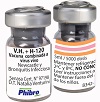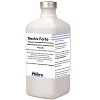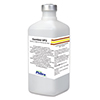
Newcastle Disease
Newcastle disease is highly contagious viral disease of chickens, turkeys, and most other birds. The most severe form of the disease is characterized in chickens by high mortality, nervous signs and haemorrhagic and necrotic lesions in the gut mucosa. The severity of the symptoms depends on the virulence of the infecting virus and host susceptibility.
It is a notifiable disease so any suspected outbreaks should be reported to the relevant Veterinary Authorities.
The ND virus is an avian paramyxovirus serotype 1 (PMV-1) and is the most important of the 11 known PMV serotypes as a pathogen for poultry. The virulent field strains are classified as being “Velogenic” whereas the majority of the vaccine strains are classified as either “Lentogenic” or “asymptomatic”.
ND viruses can also be grouped based on their primary organ of replication i.e., “viscerotropic” for those that target the intestinal tract or “respirotropic” for those that target the respiratory tract. In general, we find that respirotropic vaccine strains give better protection against virulent field strains due to the fact that the port of entry for field viruses is the respiratory tract.
An effective vaccination program using both live and inactivated/vectored vaccines is highly important in helping to control field challenges. Live vaccines will stimulate both a mucosal/cell-mediated immunity and a humoral (antibody) response, while inactivated/vectored vaccines will produce a humoral response. An HI titer above Log2 4 in birds can protect against mortalities and a titer of Log2 8 can help prevent egg production drops in laying birds.









